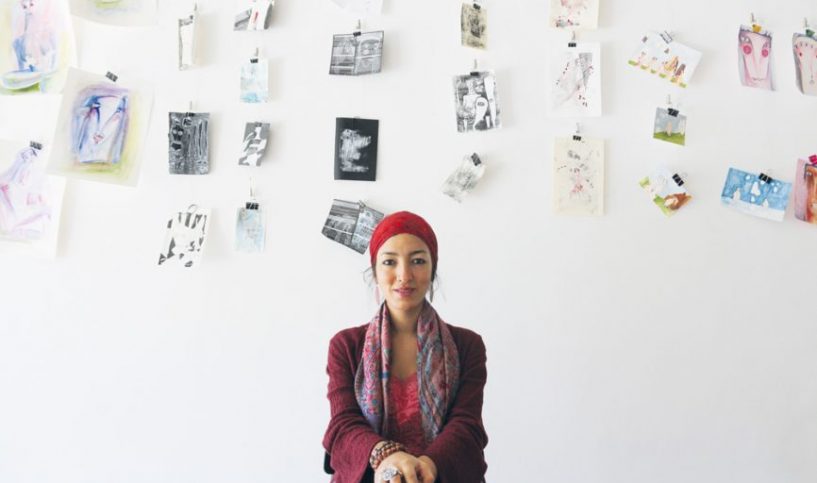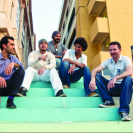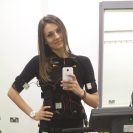According to her Instagram account, Fatma Abodoma – a unique, talented artist and photographer – is “a human witch who used to be a whale.” Through this wacky and original phrase, Fatma invites us to a world of playfulness and intrigue. Being a sucker for original souls, I knew I had to ask her a few questions! Join me in getting to know a little more about this passionate artist.
As a visual artist, you bring the world to life through art and photographs. I noticed you take many portraits. Have you found the gateway to heaven in human faces?
Yes, I found the gateway to heaven in human faces. A human face communicates love, hatred, passion, happiness; it shows all the mixed complicated feelings, especially the eyes. The human body is also a gateway to a lot of things, but in a face, feelings are more focused.
Tell us a little about your artist-in-residence program at Al Makan Art Studio.
Generally, residence programs add something to the artist’s world. It is like an adventure. I work on my art outside of my comfort zone and bond with the new energy of the space, exploring different moods, which is very important from time to time. Plus, what is essential is the interaction with people, conversation, communication and exposure. The youth usually come to Al Makan to hang out with friends, not to be introduced to art or artists. But, then, they have access to art when they do come, and, as a result, begin to appreciate art and reach a point of understanding it. The theme I chose for this residence program is the challenges and changes between women and society nowadays.
Do you transcend gender, nationality and belief systems in your art, or do you think it is important to reflect your labels in your art?
To me, art is a personal expression of an idea, feeling, experience or sometimes an opinion. Therefore, it is a spectrum including both transcendence and labels.
Are there any underlying messages in your work or do you let the art lead the way?
The message in my art is usually not in the artwork itself, but in how my art reaches each person. In a certain sense, we can say that art leads the way.
Finally, I have spoken to many people who are afraid of criticism and claim to not be ready to share their art with the world. What would you say to these artists that bury their passions for fear of expressing themselves?
Socrates said: “Speak, so that I may see you.” Although art is a personal expression, I feel that the interaction between art and the audience is a cornerstone for its completion. Criticism is one of the natural outcomes of exposure. It expresses the diversity in people and their reactions. This diversity contributes to the artist’s evolution and widens the artist’s point of view.
You can follow Fatma Abodoma on her Instagram account: @fatmabodoma or view her work on www.behance.net/fatmabodoma.











